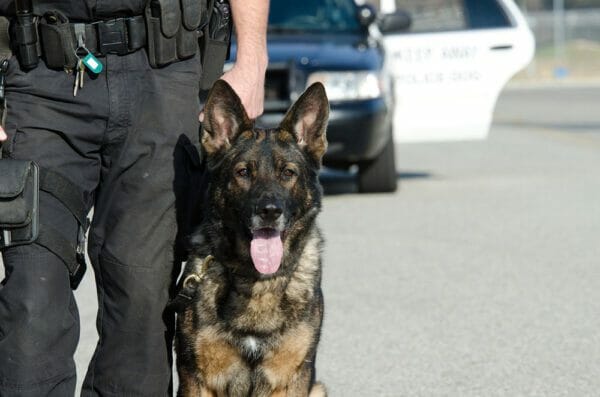
La-la land: palm trees, swimming pools, movie stars, and hotbed of the “follow- home crime surge,” in which victims in elite commercial and entertainment areas are tracked by criminal gangs to their homes or businesses.
An analysis using publicly-available Los Angeles Police Department (LAPD) data concluded that last year, overall crime in the city increased by 11.6% compared to 2021. Robberies were up, burglaries and break-ins increased by 15.4%, and “there were more assaults reported in the city…than any year since at least 2010.” Another worrying trend was that certain crimes were more likely to be violent or involve the use of a weapon: 30.1% of all robberies in 2022 involved a gun, compared to 21.1% in the pre-pandemic year of 2019, and 41% of 2022 assaults were categorized as aggravated or assault with a deadly weapon.
Los Angelinos already jumpy about crime learned recently that the union for the LAPD’s sworn officers was proposing that officers no longer respond to 28 kinds of 911 calls. While many of these could truthfully be handled effectively by non-police entities, the list also includes potentially risky calls about trespassing or loitering, “non-criminal” individuals who appear drugged, intoxicated, or mentally disturbed, and so-called “Code 30 Alarm Response” (alarms reported by an alarm company, other than robbery silent alarms).
The Los Angeles Times reports that some well-heeled residents are coping by acquiring the canine equivalent of James Bond – one or more “high-performance protection dogs” that command eye-watering prices of upwards of $45,000 per dog. The animals are “typically German shepherds, Belgian Malinois, Dobermans, cane corsos or a mix of those breeds.” A spokesperson for one security dog company describes their clientele as the “upper 3[%] to 4% financially,” like pro athletes and other celebrities, top business executives, and “the traditional affluent family.”
“[H]omeowners who can afford it are being more proactive,” says the article.
There’s reportedly no standard certification for dogs trained for personal security, though, and in any event, the article notes that buyers are encouraged to commit to ongoing “maintenance training” so that the dog remains appropriately responsive to threats. One supplier emphasizes that their German Shepherds (most expensive dog sold: $230K) “are good solid companions that take care of their family,” but are “not trained to kill – we don’t train killers – they’re trained to stop the threat.”
Others are opting for a different traditional method of proactive security. The FBI’s NICS firearm background check numbers for California show a slight uptick in the first two months of this year (219,107) as compared to the same time last year (210,577). (NICS numbers don’t correlate exactly to the number of firearms sold, but are broadly indicative of sale trends.)
Dogs are great, absolutely, but a reliable personal protection firearm is much less expensive than these high-end guard dogs. Upkeep for firearms is less demanding, and unlike a dog, there’s zero chance that a firearm will run off to menace the UPS delivery man.
For those who want the convenience of a machine that keeps the appealing doggy look, there’s the “quadruped unmanned ground vehicle,” a.k.a. Spot the robot dog (approx. $278K). On March 7, the Los Angeles City Council heard the public’s thoughts on whether to accept the donation of a Boston Dynamics Spot robot for the LAPD SWAT team. The deputy police chief assured the council that Spot would, essentially, be a good dog. “Under no circumstances would Spot be equipped with any type of weapon systems, whether lethal or less lethal, it will not be equipped with any type of facial recognition software, and will not be used for surveillance.”
While the police commission and the council’s public safety committee were in favor of the move, residents at the meeting were largely opposed. “This is not cute and friendly. It’s just a killer robot,” said one attendee. The council decided to postpone the vote on the decision for 60 days, so that policies on the use of the robo-dog could be prepared when the items comes back on the agenda.
Four-legged protection, mechanical or not, is certainly one choice for those that have the inclination and money. Others taking responsibility for their own safety can opt for a different kind of trustworthy companion.
About NRA-ILA:
Established in 1975, the Institute for Legislative Action (ILA) is the “lobbying” arm of the National Rifle Association of America. ILA is responsible for preserving the right of all law-abiding individuals in the legislative, political, and legal arenas, to purchase, possess, and use firearms for legitimate purposes as guaranteed by the Second Amendment to the U.S. Constitution. Visit: www.nra.org

from https://ift.tt/sYHVnaP
via IFTTT

No comments:
Post a Comment